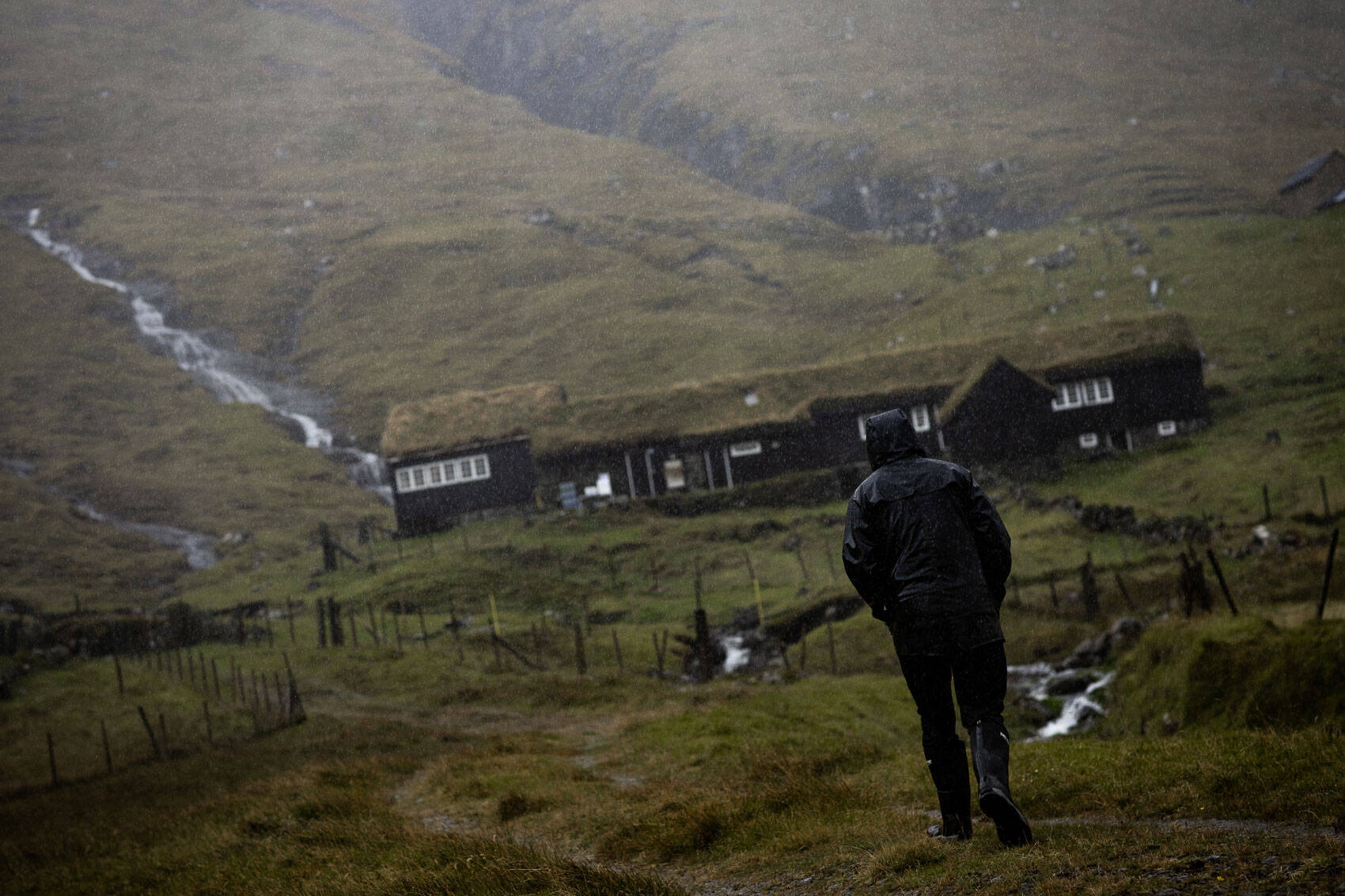“
If you let someone else in and let new eyes and new minds into your world it can really benefit you”
What lessons have you learned from this time that you would like to share?
“I think this time just emphasizes what we’ve been doing all along, which is supporting the local community and trying to work with the people around us. This time has shown how valuable that actually is, so if you’re able to do that you should definitely do that. I also hope that people see how much value the restaurant scene brings now. The people working in it are usually not paid very well and work long and tough hours. Now that the restaurant scene isn’t here we can really see how valuable it is, for the economy, the community and the wellbeing of the people. So to everyone outside the industry: think about that for a while and then give your employees a raise or something.”
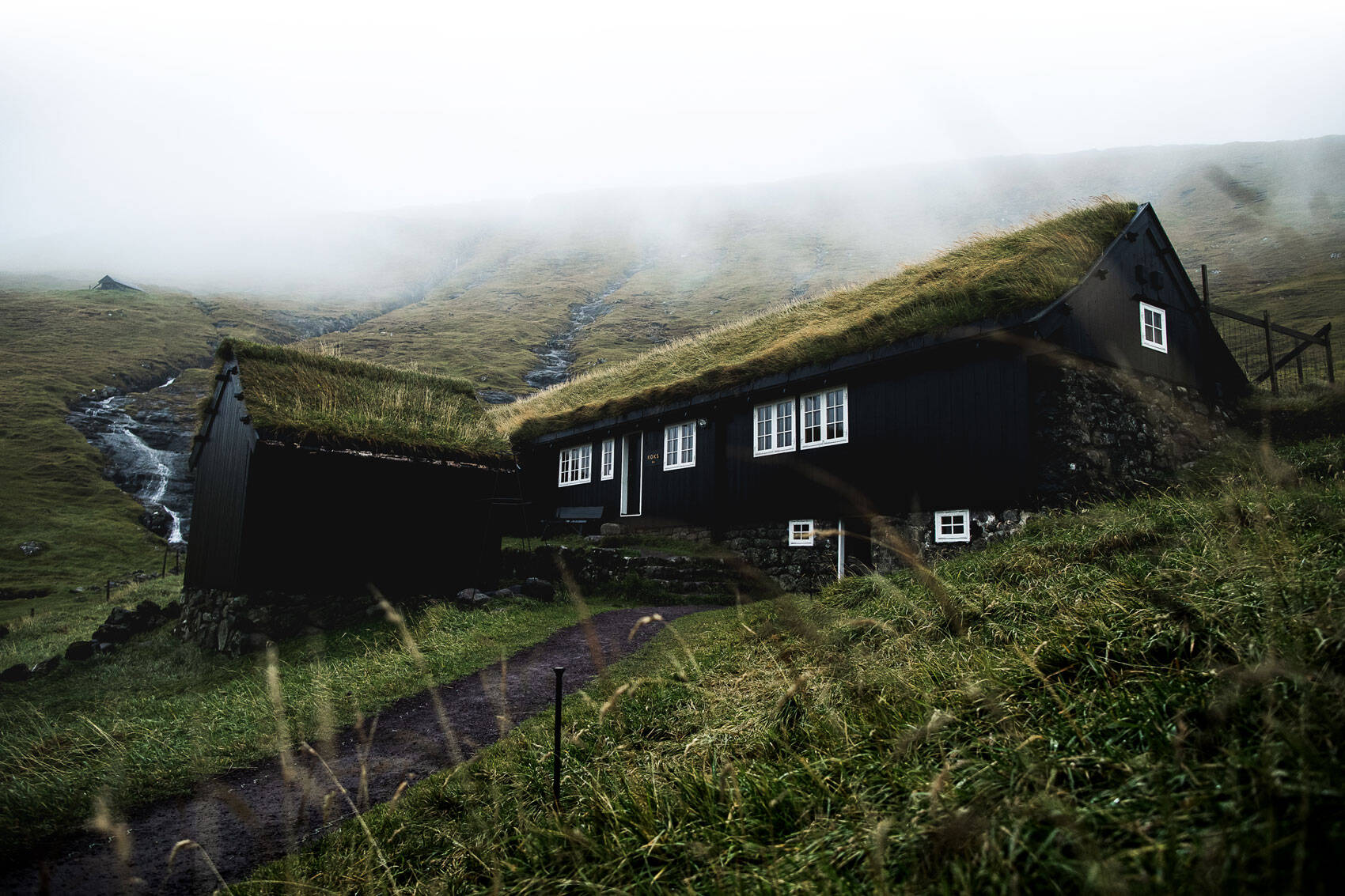
What’s this time of crisis been like for you personally?
“It sounds like a cliché, but it’s difficult to see what you’re doing when you’re in it all the time. When the restaurant was taken from us I got a little scared. I wondered if this chapter of my life was over, and I really didn’t want that to happen. I truly felt how much this all means to me, more than I have in a long time. The pop-up too; we’ve been talking for a long time about opening a sister restaurant that can be a supplement to our own restaurant. For instance, using the prime cuts for our main restaurant and the cheaper cuts for our other restaurant to reduce waste. We got to try that out now and figure out how to do it. That was very valuable for us. And the first three weeks or so we were all at home. That was also quite nice, even though people were worrying. Here on the Faroe Islands the health crisis hasn’t been that bad at all. We haven’t had the virus for weeks. During the lockdown everyone felt safe and I was able to relax and spend time with my kids. It’s always frustrating not knowing what’s going to happen but we tried to make the best out of it.”
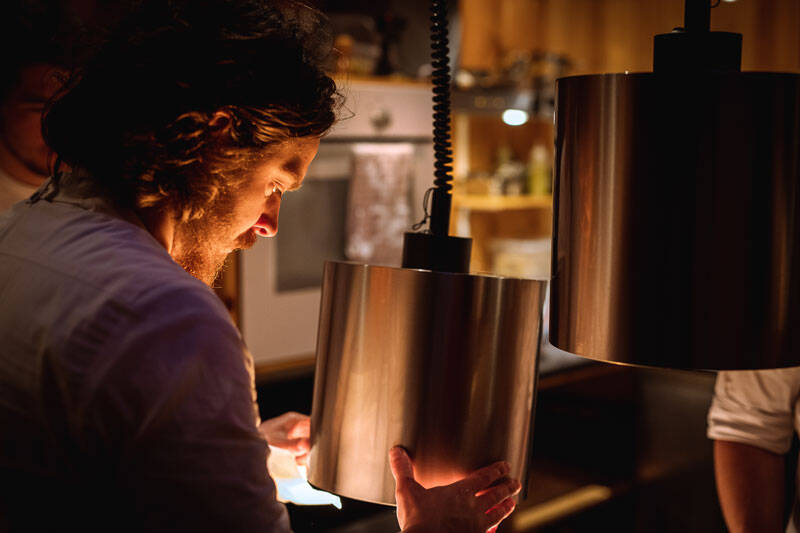
Could you expand on your philosophy a little bit?
“I think it’s very important for a restaurant to have people around you that can provide you with things you can use. It’s not wrong to import things, but what you can buy from your local supplier you should. Often it’ll be of higher quality, and you’ll help them grow. I remember when we started buying from local fishermen. We got maybe cod or haddock then, but over the years as the market grew bigger and more restaurants started supporting these fishermen they were able to expand and able to do things in the way we wanted it to be done. Instead of getting fish the way a restaurant in Spain wanted it we get it in a way that makes sense for us. Because we built a market here. And because they know who we are and what we stand for they’re willing to go an extra mile to support us the same way we support them. “
“If you have a good relationship with your producers it helps not only yourself but them as well. We had a conversation where we asked some fishermen ‘what are you throwing off the ship?’ and then we try to work with that and if you are successful with that you create a market for bycatch, and they can earn more. Sometimes when you do the same thing for many years you don’t see clearly. You would never expect someone to be interested in buying a fish you’ve been throwing away for twenty years. But if you let someone else in and let new eyes and new minds into your world it can really benefit you.”
“
We need to somehow convince people to eat less, but better quality”
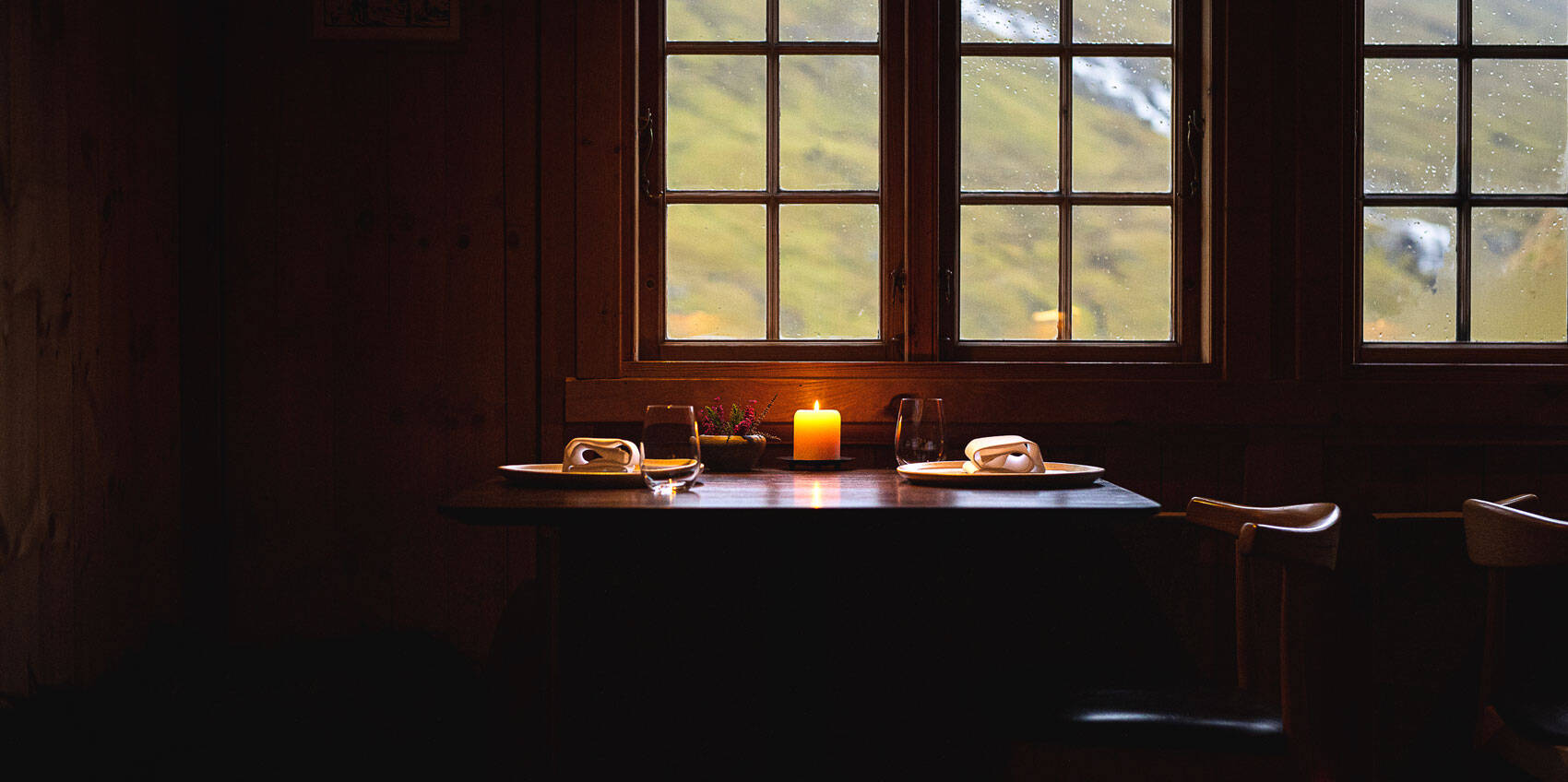
Do you have any advice for someone trying to establish a connection with local suppliers?
“It’s just getting out there and talking to people. That’s what I did to get in contact with local farmers and fisherman. Be prepared to sacrifice a little bit, because this isn’t the easy way. It would be a lot easier for us if we just had one person to order everything from. Now we have maybe seven or eight. We get carrots, leeks, and potatoes from one guy and root vegetables from another guy and rhubarb from another guy and then the shellfish from three different guys… It’s not easier in any way but at the end of the day it feels more satisfying, especially if you get higher quality produce.”
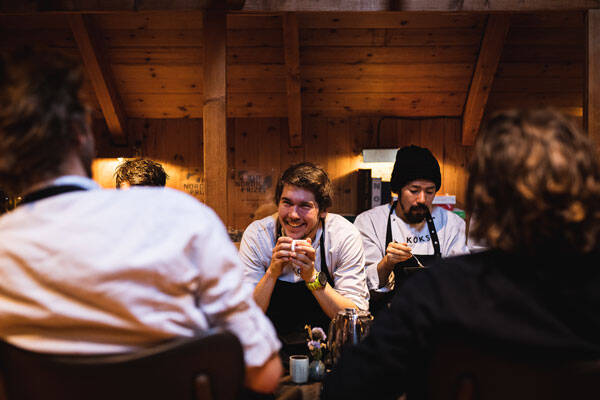
Has your relationship with your local suppliers changed because of the pandemic?
“I haven’t had to change anything so far. We always try to work with them. We’re an island community, so working with the locals isn’t just because of the sustainability aspect. I like to work with the highest quality ingredients and when you live in a place like the Faroe Islands the goods that get shipped are on a boat that takes 35 hours to get here. Usually products are a couple of days old when we get them if we buy from abroad. The quality has been a main drive in working with the locals, and along the way you see that it makes sense in many different ways from sustainability to just supporting your local community and helping them grow. I think it’s fantastic. We’re going to sit down and make our menu for when we reopen in the next couple days, and we always try to be better and better at using the things that are around us. We’re going to continue doing that.”
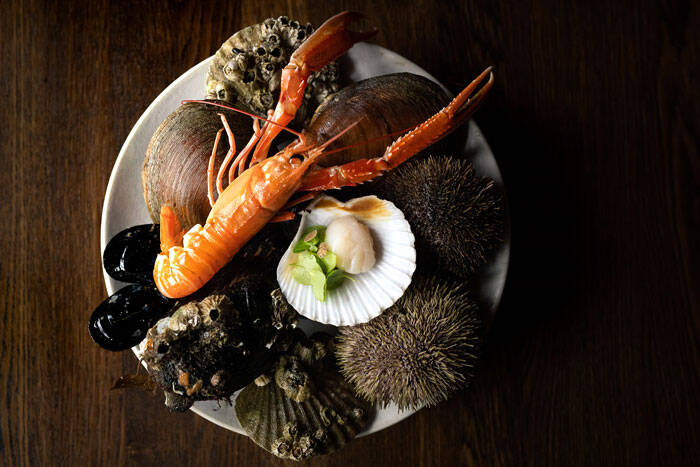
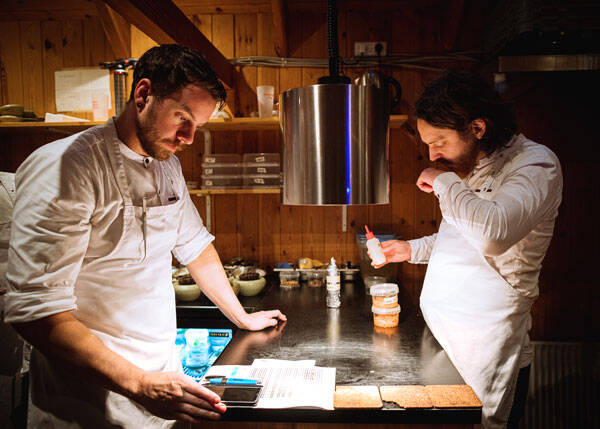
What can be done to make the food and hospitality industry more resilient in the future?
“That’s very difficult. The things we eat and drink at home are not the same as what we eat and drink in a restaurant. You need someone to buy the quality produce and products. I think we need to somehow convince people to eat less, but better quality. But that would also affect some other businesses. The only thing I end up at is that you usually don’t eat as well at home as you do at a restaurant, and maybe if we changed that then the local fisherman and brewer and farmer who dedicate their lives to making products of the highest quality would have a better chance of surviving a crisis like this.”
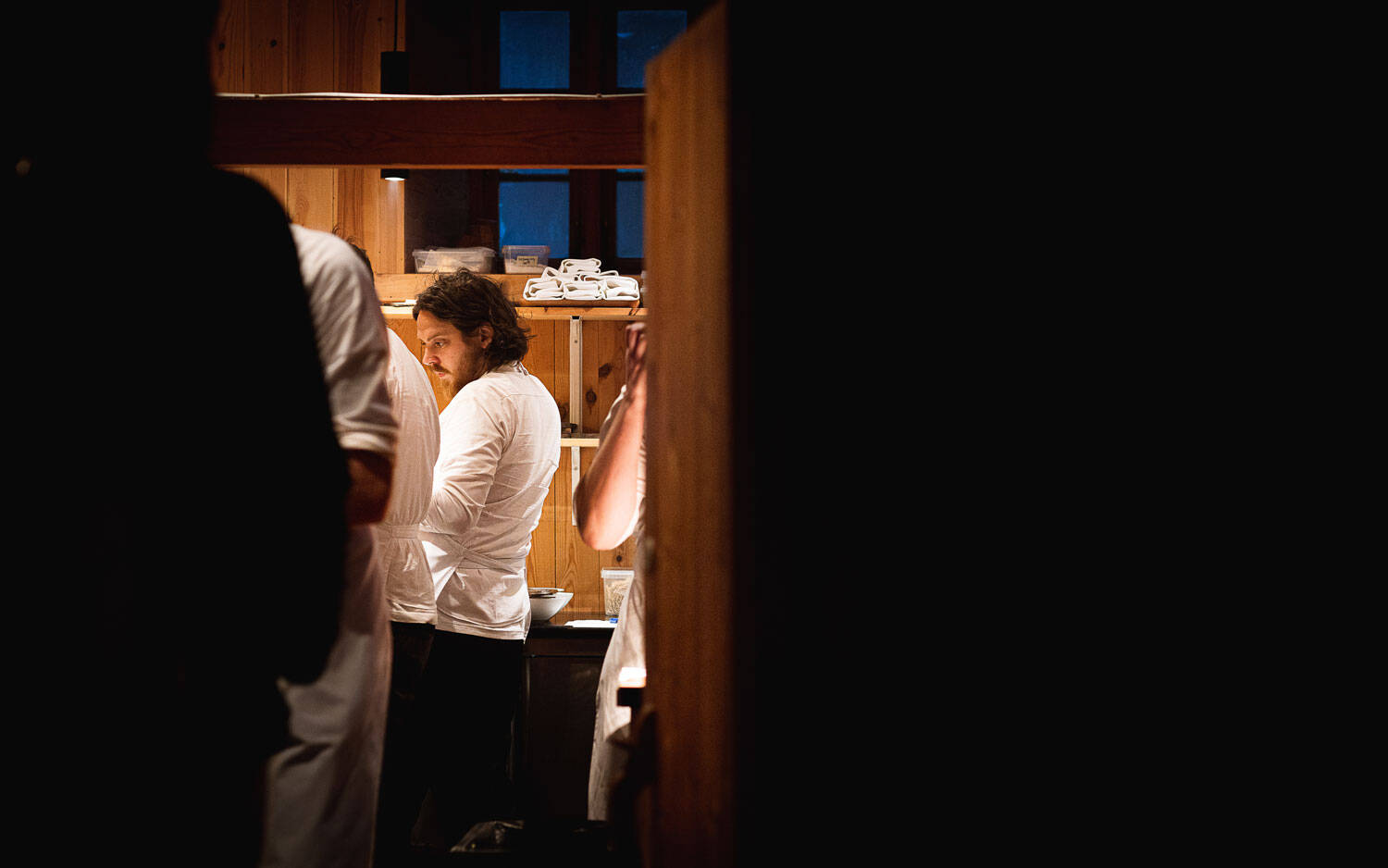
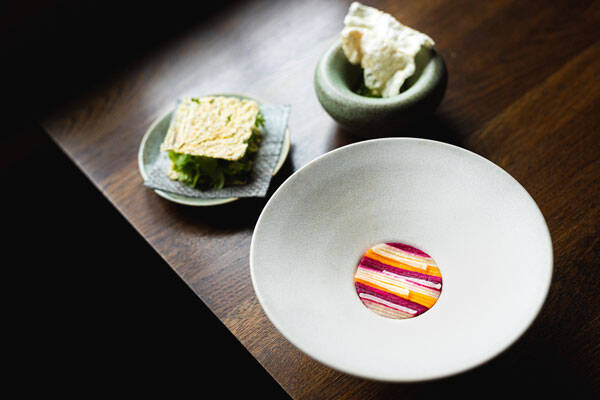
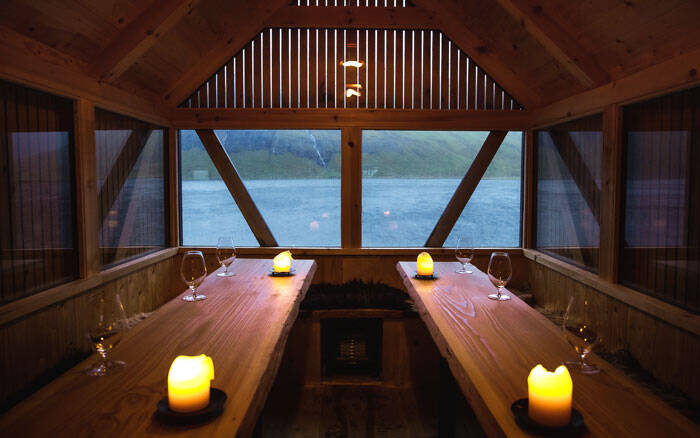
What changes are you making now that you’re allowed to open again?
“I don’t think we’ll make many changes to our menu. We have a tasting menu that has mostly local produce. We strongly believe we should support the local community in every aspect, as long as we’re buying quality. That’s worked really well for us, and I think it might be what everyone needs to survive this crisis. We stand together and try to support each other in the local community. So far we haven’t lost any suppliers.”
“I think what we can really see now is how the restaurant and hotel scene affects the global market. The guys we buy our fish from are having a really hard time because the hotels and restaurants in England and Spain and Italy are closed. It’s a chain reaction. Yesterday I spent a day together with a well-known brewer and he said the same thing. Their beers aren’t in supermarkets so their sales dropped by 97 or 98 percent from one day to the next. Wine and vegetables are the same. We can see how much the restaurant scene actually means for the economy of everything around the restaurant itself.”
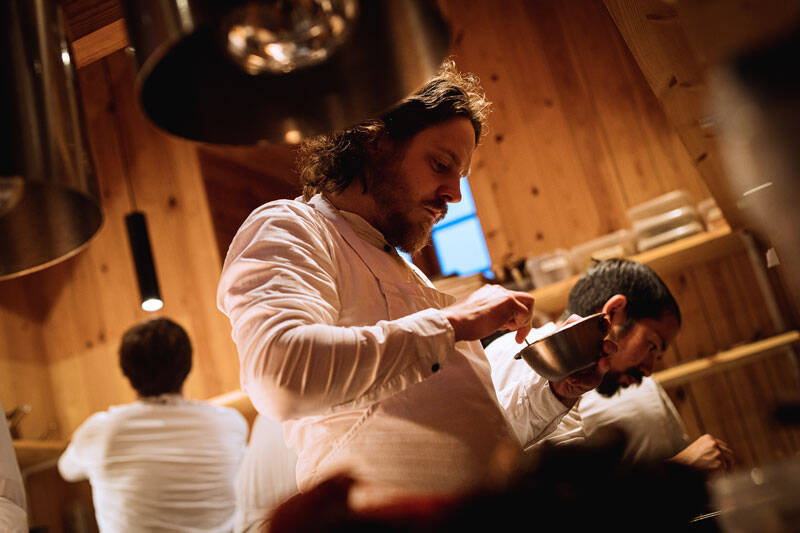
How long do you expect recovery to take?
“We live for the summer season. And that’s gone. It’s not going to be anything like it was before next year. We’re still restricted in a lot of ways. We have a lot of interns that aren’t able to travel to our restaurant, so we’ll need to change things to work with fewer hands. And fewer guests. If everything goes well I expect the country to fully open up the first of September. That’s a good month for us, but after that we usually see a decrease in tourists on the Faroe Islands. So we might have one full month. We’ll just have to adjust to that.”
How has the pandemic affected your business?
“Our restaurant is highly dependent on tourism. 90 percent of our guest are from abroad, and we’re usually closed from December to February. This year we were getting ready for the 2020 season and everything was going well. Then, on the day that we were supposed to open we got the news that restaurants wouldn’t be able to stay open. It was a real anticlimax for us.”
“Fortunately here on the Faroe Islands we are helped by the government through some stimulus packages, and were able to keep everyone on staff. After a month or so we decided to open up a pop-up restaurant that was more in tune with the locals. It’s a more down to earth restaurant with fewer servings and overall more affordable to eat at. We opened that around three weeks ago and we’re fully booked. We hope to open our main restaurant again on the 7th of July as the countries slowly open up again. Usually we’re open six days a week but we’re only going to be open four days a week because I don’t expect to have full coverage.”
“Obviously it’s not a good situation but we managed to get through it okay. I’m not afraid for the future of the restaurant. Of course we’re still in this crisis, so it’s difficult to say exactly what the future will hold, but I think we will manage.”
“
We strongly believe we should support the local community in every aspect”
Jelle Steenbergen Floris Heuer Xiao Er Kong
For proof that the entire world has been negatively affected by the COVID-19 pandemic look no further than destination restaurant KOKS on the remote Faroe Islands, a North Atlantic archipelago located north-northwest of Scotland. The restaurant's dedication to local products earned KOKS its second Michelin star in 2019, but as a business dependent on tourism, it too has been deeply affected by the pandemic. Food Inspiration spoke to chef Poul Andrias Ziska about how he has experienced the past few months.
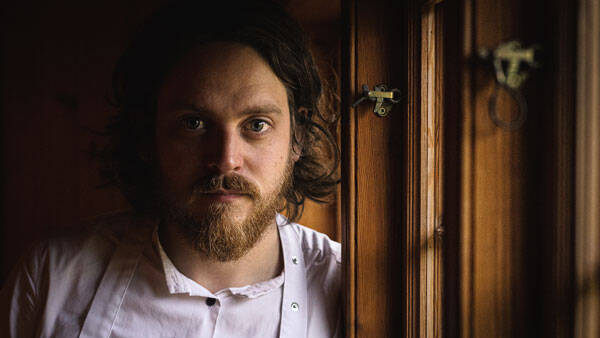
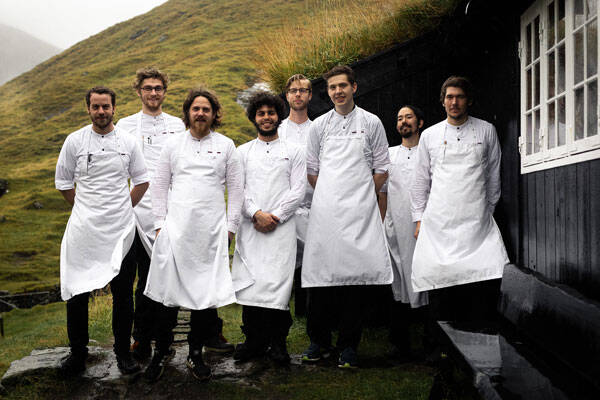
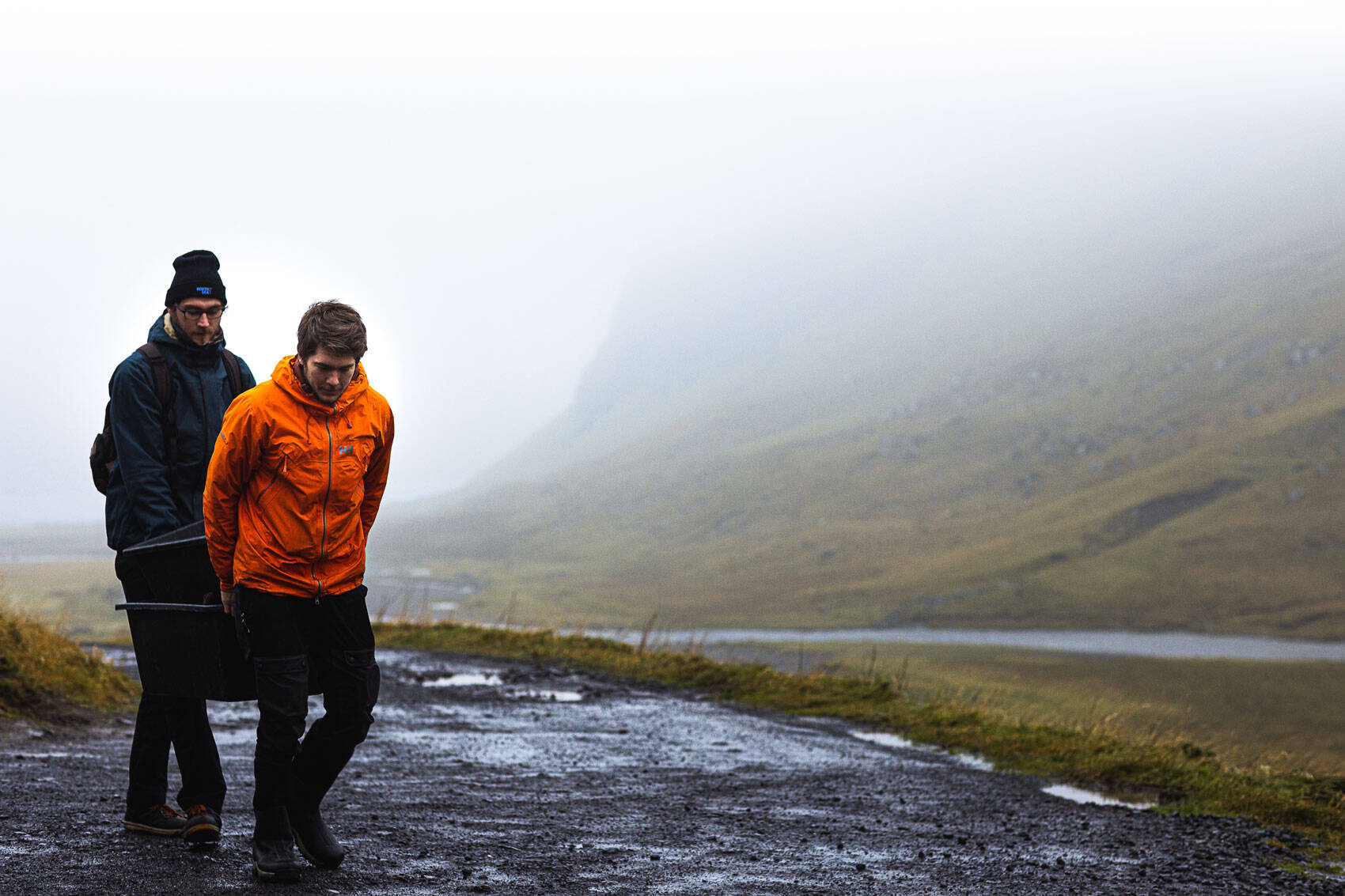
Chef Poul Andrias Ziska of restaurant KOKS on working with local suppliers in difficult times
On the Faroe Islands the local community is everything
INTERVIEW
8 min
ON THE FAROE ISLANDS THE LOCAL COMMUNITY IS EVERYTHING
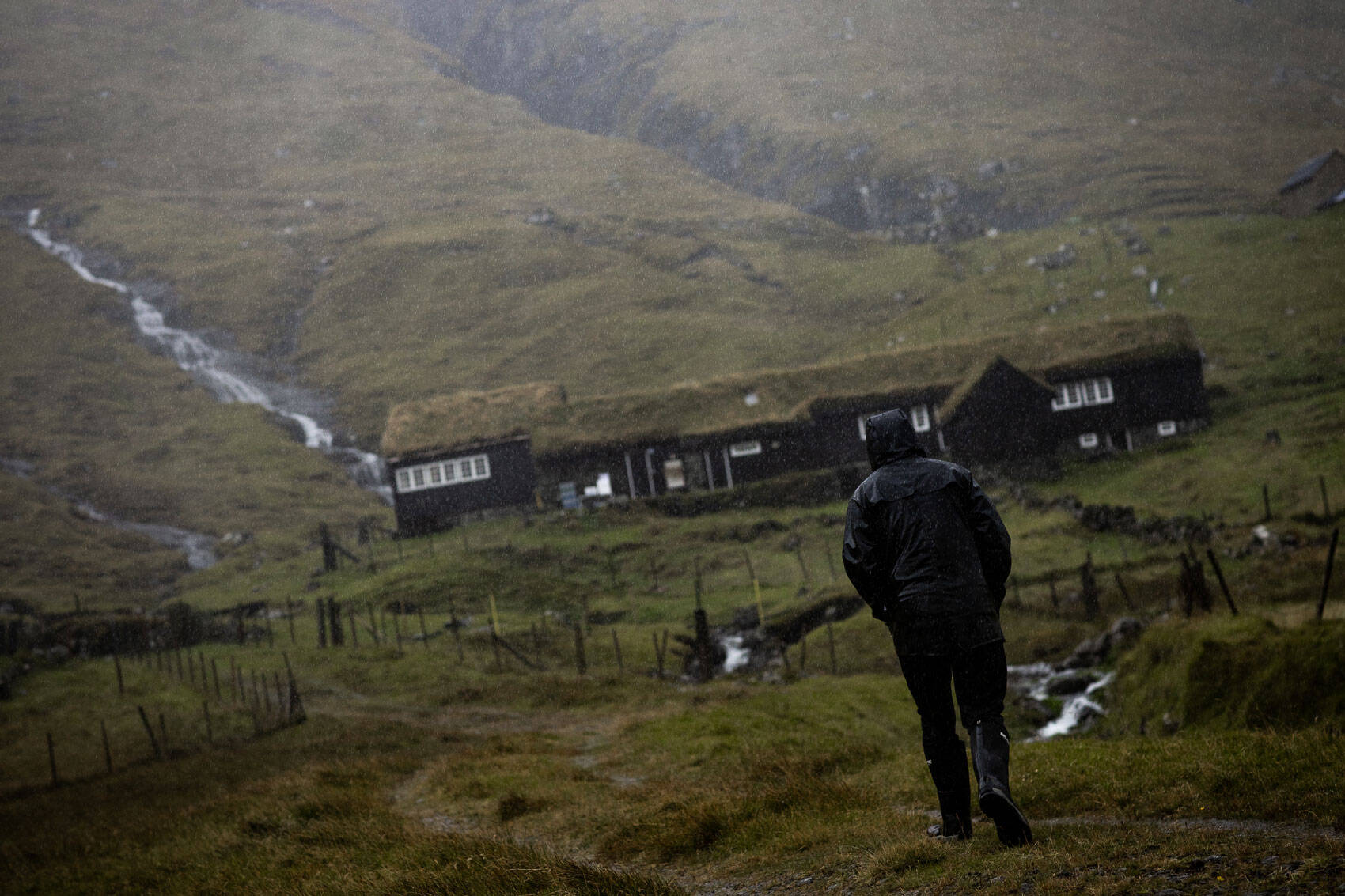
What lessons have you learned from this time that you would like to share?
“I think this time just emphasizes what we’ve been doing all along, which is supporting the local community and trying to work with the people around us. This time has shown how valuable that actually is, so if you’re able to do that you should definitely do that. I also hope that people see how much value the restaurant scene brings now. The people working in it are usually not paid very well and work long and tough hours. Now that the restaurant scene isn’t here we can really see how valuable it is, for the economy, the community and the wellbeing of the people. So to everyone outside the industry: think about that for a while and then give your employees a raise or something.”
“
If you let someone else in and let new eyes and new minds into your world it can really benefit you.”

What’s this time of crisis been like for you personally?
“It sounds like a cliché, but it’s difficult to see what you’re doing when you’re in it all the time. When the restaurant was taken from us I got a little scared. I wondered if this chapter of my life was over, and I really didn’t want that to happen. I truly felt how much this all means to me, more than I have in a long time. The pop-up too; we’ve been talking for a long time about opening a sister restaurant that can be a supplement to our own restaurant. For instance, using the prime cuts for our main restaurant and the cheaper cuts for our other restaurant to reduce waste. We got to try that out now and figure out how to do it. That was very valuable for us. And the first three weeks or so we were all at home. That was also quite nice, even though people were worrying. Here on the Faroe Islands the health crisis hasn’t been that bad at all. We haven’t had the virus for weeks. During the lockdown everyone felt safe and I was able to relax and spend time with my kids. It’s always frustrating not knowing what’s going to happen but we tried to make the best out of it.”
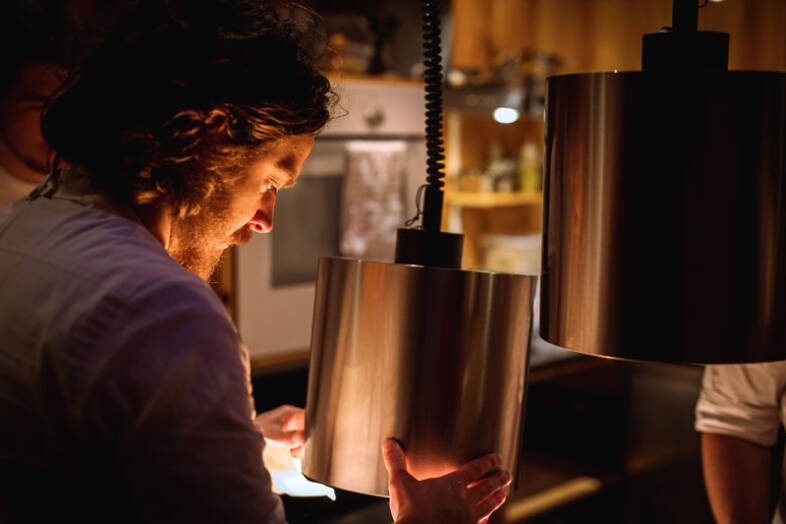
Could you expand on your philosophy a little bit?
“I think it’s very important for a restaurant to have people around you that can provide you with things you can use. It’s not wrong to import things, but what you can buy from your local supplier you should. Often it’ll be of higher quality, and you’ll help them grow. I remember when we started buying from local fishermen. We got maybe cod or haddock then, but over the years as the market grew bigger and more restaurants started supporting these fishermen they were able to expand and able to do things in the way we wanted it to be done. Instead of getting fish the way a restaurant in Spain wanted it we get it in a way that makes sense for us. Because we built a market here. And because they know who we are and what we stand for they’re willing to go an extra mile to support us the same way we support them. “
“If you have a good relationship with your producers it helps not only yourself but them as well. We had a conversation where we asked some fishermen ‘what are you throwing off the ship?’ and then we try to work with that and if you are successful with that you create a market for bycatch, and they can earn more. Sometimes when you do the same thing for many years you don’t see clearly. You would never expect someone to be interested in buying a fish you’ve been throwing away for twenty years. But if you let someone else in and let new eyes and new minds into your world it can really benefit you.”
“
We need to somehow convince people to eat less, but better quality.”

Do you have any advice for someone trying to establish a connection with local suppliers?
“It’s just getting out there and talking to people. That’s what I did to get in contact with local farmers and fisherman. Be prepared to sacrifice a little bit, because this isn’t the easy way. It would be a lot easier for us if we just had one person to order everything from. Now we have maybe seven or eight. We get carrots, leeks, and potatoes from one guy and root vegetables from another guy and rhubarb from another guy and then the shellfish from three different guys… It’s not easier in any way but at the end of the day it feels more satisfying, especially if you get higher quality produce.”
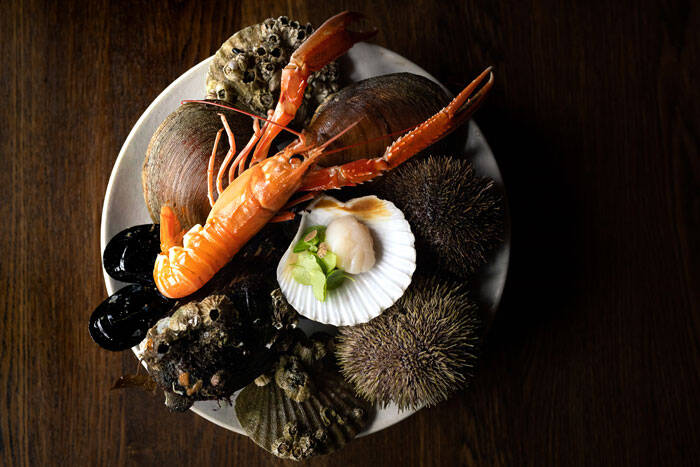
Has your relationship with your local suppliers changed because of the pandemic?
“I haven’t had to change anything so far. We always try to work with them. We’re an island community, so working with the locals isn’t just because of the sustainability aspect. I like to work with the highest quality ingredients and when you live in a place like the Faroe Islands the goods that get shipped are on a boat that takes 35 hours to get here. Usually products are a couple of days old when we get them if we buy from abroad. The quality has been a main drive in working with the locals, and along the way you see that it makes sense in many different ways from sustainability to just supporting your local community and helping them grow. I think it’s fantastic. We’re going to sit down and make our menu for when we reopen in the next couple days, and we always try to be better and better at using the things that are around us. We’re going to continue doing that.”
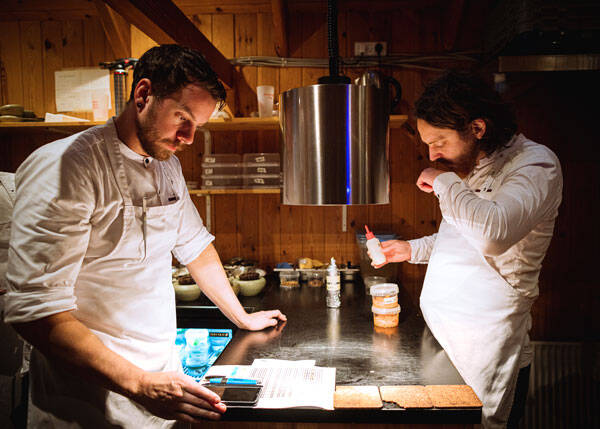
What can be done to make the food and hospitality industry more resilient in the future?
“That’s very difficult. The things we eat and drink at home are not the same as what we eat and drink in a restaurant. You need someone to buy the quality produce and products. I think we need to somehow convince people to eat less, but better quality. But that would also affect some other businesses. The only thing I end up at is that you usually don’t eat as well at home as you do at a restaurant, and maybe if we changed that then the local fisherman and brewer and farmer who dedicate their lives to making products of the highest quality would have a better chance of surviving a crisis like this.”
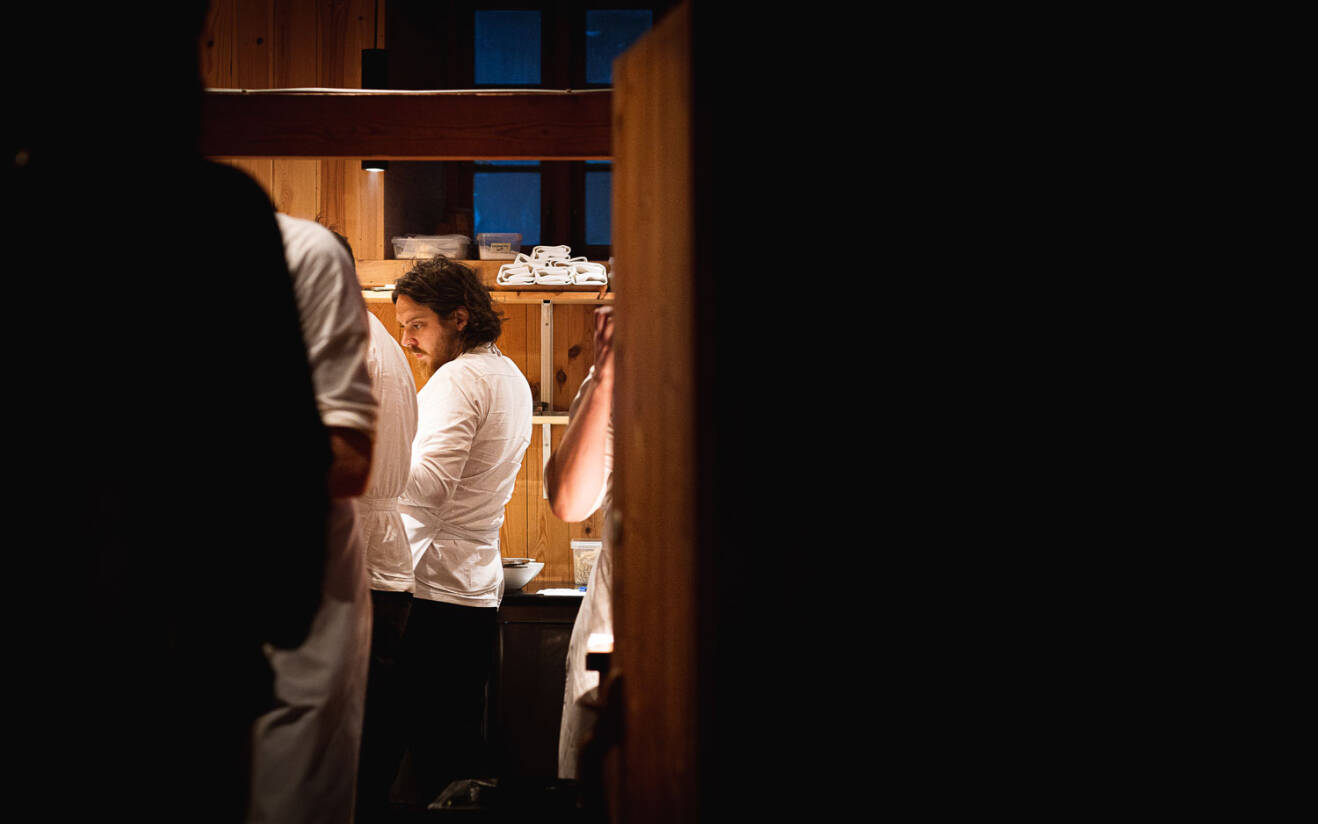
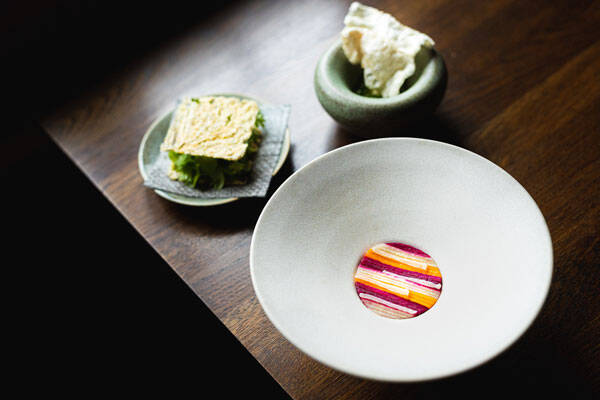
What changes are you making now that you’re allowed to open again?
“I don’t think we’ll make many changes to our menu. We have a tasting menu that has mostly local produce. We strongly believe we should support the local community in every aspect, as long as we’re buying quality. That’s worked really well for us, and I think it might be what everyone needs to survive this crisis. We stand together and try to support each other in the local community. So far we haven’t lost any suppliers.”
“I think what we can really see now is how the restaurant and hotel scene affects the global market. The guys we buy our fish from are having a really hard time because the hotels and restaurants in England and Spain and Italy are closed. It’s a chain reaction. Yesterday I spent a day together with a well-known brewer and he said the same thing. Their beers aren’t in supermarkets so their sales dropped by 97 or 98 percent from one day to the next. Wine and vegetables are the same. We can see how much the restaurant scene actually means for the economy of everything around the restaurant itself.”
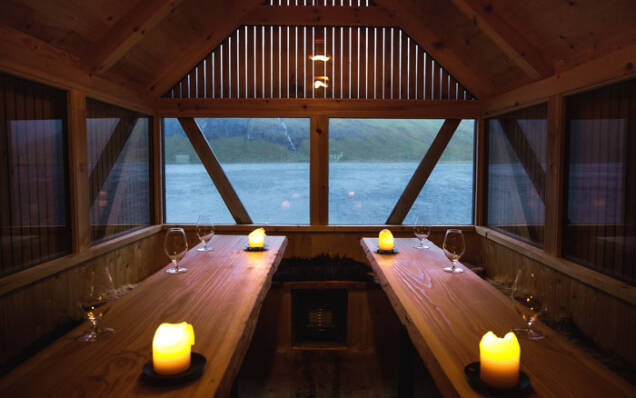
How long do you expect recovery to take?
“We live for the summer season. And that’s gone. It’s not going to be anything like it was before next year. We’re still restricted in a lot of ways. We have a lot of interns that aren’t able to travel to our restaurant, so we’ll need to change things to work with fewer hands. And fewer guests. If everything goes well I expect the country to fully open up the first of September. That’s a good month for us, but after that we usually see a decrease in tourists on the Faroe Islands. So we might have one full month. We’ll just have to adjust to that.”
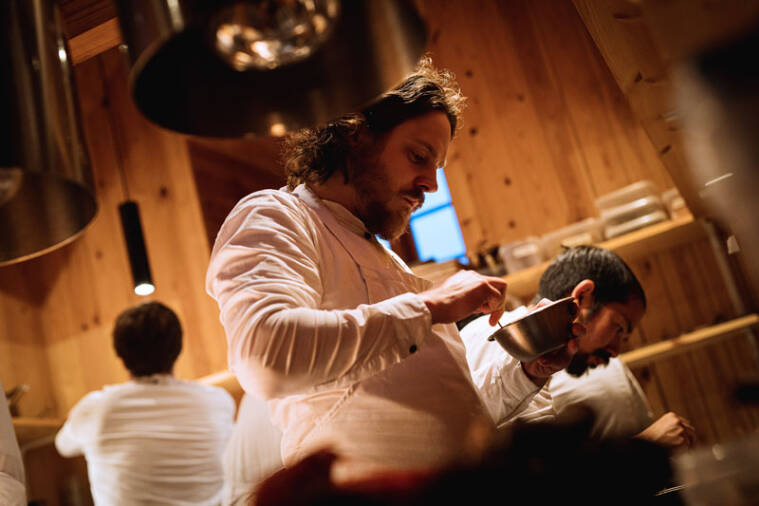
How has the pandemic affected your business?
“Our restaurant is highly dependent on tourism. 90 percent of our guest are from abroad, and we’re usually closed from December to February. This year we were getting ready for the 2020 season and everything was going well. Then, on the day that we were supposed to open we got the news that restaurants wouldn’t be able to stay open. It was a real anticlimax for us.”
“Fortunately here on the Faroe Islands we are helped by the government through some stimulus packages, and were able to keep everyone on staff. After a month or so we decided to open up a pop-up restaurant that was more in tune with the locals. It’s a more down to earth restaurant with fewer servings and overall more affordable to eat at. We opened that around three weeks ago and we’re fully booked. We hope to open our main restaurant again on the 7th of July as the countries slowly open up again. Usually we’re open six days a week but we’re only going to be open four days a week because I don’t expect to have full coverage.”
“Obviously it’s not a good situation but we managed to get through it okay. I’m not afraid for the future of the restaurant. Of course we’re still in this crisis, so it’s difficult to say exactly what the future will hold, but I think we will manage.”
“
We strongly believe we should support the local community in every aspect”
Jelle Steenbergen Floris Heuer Xiao Er Kong
For proof that the entire world has been negatively affected by the COVID-19 pandemic look no further than destination restaurant KOKS on the remote Faroe Islands, a North Atlantic archipelago located north-northwest of Scotland. The restaurant's dedication to local products earned KOKS its second Michelin star in 2019, but as a business dependent on tourism, it too has been deeply affected by the pandemic. Food Inspiration spoke to chef Poul Andrias Ziska about how he has experienced the past few months.
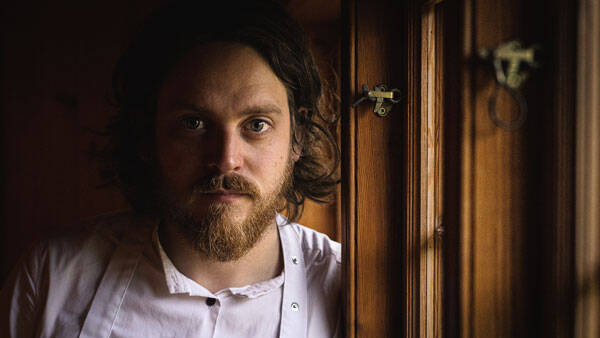
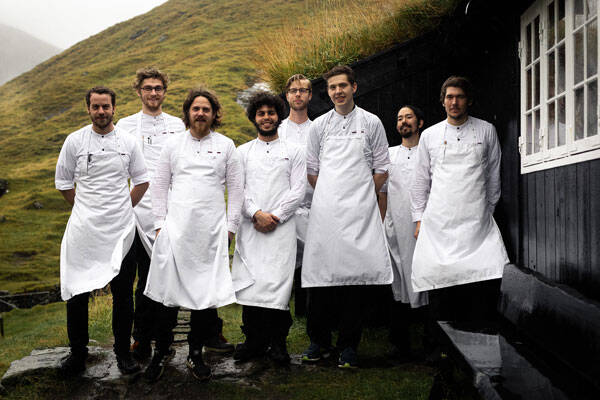

Chef Poul Andrias Ziska of restaurant KOKS on working with local suppliers in difficult times
On the Faroe Islands the local community is everything
8 min
